Source: www.thestar.com.my
The StarYouthP2P Greeniz participants find inspiration from the Kinabatangan River for their peer-to-peer green projects.
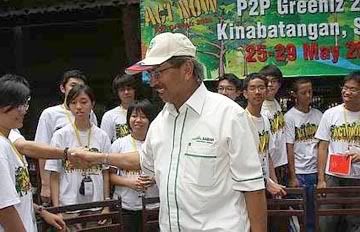
Sabah Chief Minister Datuk Seri Panglima Musa Aman showed his support for the green environmentalists by launching the programme.
FOR the 31 participants of the StarYouth P2P Greeniz programme 2008, their five days on the Kinabatangan River in Sabah gave them the opportunity to experience nature at its most pristine. While many were enthralled at the opportunity to see wildlife in their natural habitat, for others, it was a treat simply watching the stars shining brightly in the dark sky. Some even caught shooting stars.
The peer educators on the environmental project were youngsters who are passionate and enthusiastic about doing their part and spreading the green message.
Their adventure began from the moment they stepped on the speedboats that took them on a two-hour journey from Sandakan into Sukau, which is at the Lower Kinabatangan river.
Celebrating their catch, however meagre.
At 560km long, the Kinabatangan is Sabah’s longest and Malaysia’s second longest river.
Much of the Lower Kinabatangan is gazetted under the Kinabatangan Wildlife Sanctuary, and is home to 10 primate species, 50 mammal species, 250 bird species, 20 reptile species, and 1,056 plant species. It is one of the few remaining rainforests in the world.
Despite the scorching afternoon heat, the youngsters kept their eyes open for birds and animals that are unique to the forest including the proboscis monkey and the pink dolphin.
One hour into the boat ride, the group got lucky. They chanced upon a herd of pygmy elephants grazing by the riverbank.
“We were observing small creatures like birds and fishes but when we heard the trumpeting of the elephants, everyone got excited.
It was a rare opportunity. At that point, we took out our cameras and started snapping away.
“It was only later that we found out it was because of the diversion of the elephants’ path due to deforestation that we were able to see them. So, seeing the elephants actually meant that things are not going so well for the animals,” said peer educator Mary-Ruth Low.
During their trip, the participants got to experience the river at different times of the day.
They eagerly hopped onto the boats early one morning to explore the small tributaries to learn more about Kinabatangan’s rich and diverse ecosystem.
“We were very lucky to see a family of wild boars swimming across the river to get to other side of the bank. They were just right in front of our boat,” said Leo Xuying, one of the participants.
In the evenings, the group saw trees full of proboscis monkeys who were settling down for their night's rest.
On the night cruise, the participants tried their best to keep quiet as they cruised down the river to catch glimpses of nocturnal animals.
“I was initially afraid as we were cruising on a small sampan in the dark because you never know what might happen but the guides reassured us that it was safe and soon enough, we all got distracted at the sightings of different birds and animals,” participant Trixie Carlena Richard said.
The youngsters also tried their hands at fishing. They set their traps, or bubu, in the river to catch prawns, and cast nets into the river for fish.
“We didn’t have beginner’s luck. Between the 31 of us, we only managed to catch a few small fishes, which we released back into the river, and only several prawns! “But that got us thinking that it is not easy for the locals to make a living because this is their livelihood and things will get tough when they can’t get a good catch,” said participant Engeland David Apostol.
Sabah Chief Minister Datuk Seri Panglima Musa Aman officiated the programme, and the participants had the opportunity to engage him and Sabah Forestry Department director Datuk Sam Mannan on various environmental issues.
In a dialogue with the Chief Minister, the participants touched on issues like the role of the State Government in encouraging environment- friendly habits among youngsters and the implementation of environmental education in school. The peer educators also learnt about the Sabah Government’s environment conservation efforts, and various aspects of ecotourism which is one of the main livelihoods along the Kinabatangan River.
The youngsters also learnt more about responsible ecotourism and conservation efforts from the owner of Sukau Rainforest Lodge, Albert Teo, and his team.
Teo spoke to the teenagers about how he practises principles of responsible ecotourism in his resort. Solar panels were used to generate electricity and hot water, before the advent of regular power supply to the lodge.
Boats ferrying tourists to watch wildlife are equipped with electric engines as gasolinepowered engines are loud and noisy.
Teo and his team also carry out reforestation projects. They also try to involve the local community in ecotourism activities.
“Talking to the people here helped us understand the situations and obstacles that they face, and we also got to learn more about their livelihood and how they interact with nature. We learnt that it is a collective effort that everyone must actively participate in to help preserve this forest,” said peer educator Julian Anthony Theseira.
Through these newly-gained knowledge and experiences, the 31 youngsters have incepted various campaigns using different mediums to spread the green message.
The youngsters will be presenting their projects to the public on June 8 in conjunction with The Star’s Green Everyday- Act Now celebration at Taman Lembah Kiara, Kuala Lumpur.
The P2P Greeniz programme is organised by StarYouth, and supported by Maybank.
The event was hosted by Sukau Rainforest Lodge.
To watch the video of the expedition, log on to http://thestaronline.tv. To read the blog and view more photos, log on to www.rage.com.myand click on the relevant links.
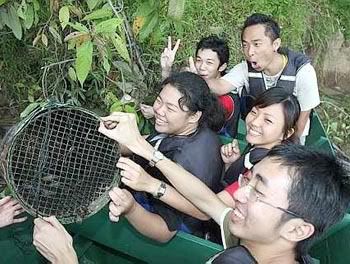
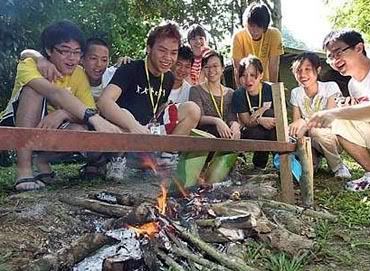
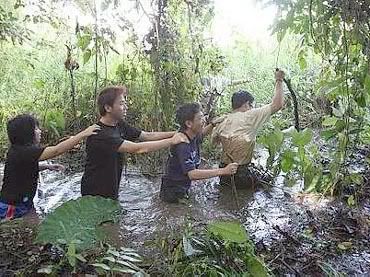
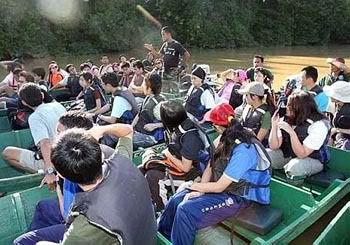
No comments:
Post a Comment